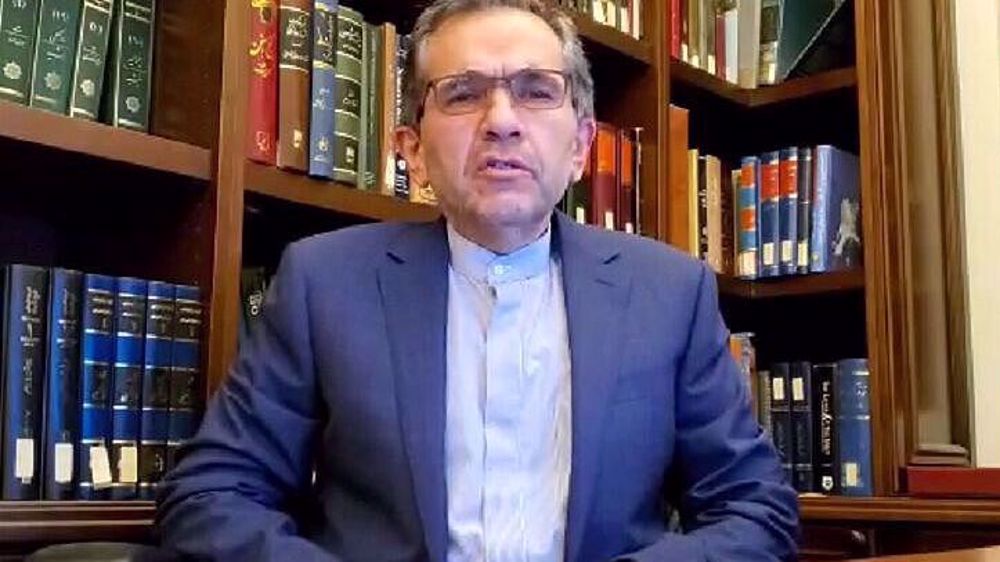Majid Takht-Ravanchi, the Iranian ambassador to the United Nations, made the remarks on Saturday in reaction to the UN secretary-general’s 10th report on the implementation of the Security Council Resolution 2231, which endorsed the 2015 nuclear deal between Iran and world powers – the US, the UK, China, Russia, and Germany.
Based on the historic deal, officially known as the Joint Comprehensive Plan of Action (JCPOA), Iran agreed to restrict parts of its nuclear energy program in return for the removal of nuclear-related sanctions imposed on the country, mainly by the US.
However, in May 2018, US President Donald Trump unilaterally pulled his country out of the JCPOA and re-instated the anti-Iran sanctions that had been lifted under the accord.
Iran then threatened to pull out of the deal unless other parties to the JCPOA make up for the reimposition of the US sanctions. The European parties proposed the INSTEX as a special purpose vehicle to circumvent the US bans. However, it has been used only in a very small number of transactions so far.
“The system must prove its efficiency after two years,” Takht-Ravanchi said in his Saturday remarks, highlighting the European countries’ promise to guarantee that Iran will reap the economic dividends of the JCPOA if it remains in it.
After the European parties failed to live up to their commitments to Iran, namely protecting their business ties with Tehran against the American sanctions, Tehran was prompted to go for retaliation on May 8, 2019, exactly one year after the US ditched the multilateral pact, when it began to suspend parts of its commitments on a stage-by-stage basis under Articles 26 and 36 of the JCPOA.
In his Saturday comments, the Iranian ambassador to the UN said Iran’s reduction of its nuclear commitments was a result of the other parties’ violation of the deal and was within Iran’s rights under the JCPOA.
Iran, however, has made it explicitly clear that once the US returns to the JCPOA and lifts all the sanctions, it is ready to reverse all the steps it has taken to reduce its commitments.
The Iranian ambassador’s remarks came after UN Secretary General Antonio Guterres underlined the need for preserving the 2015 landmark nuclear deal, urging the world countries to engage in trade ties with Tehran based on Security Council Resolution 2231 that endorsed the agreement.
